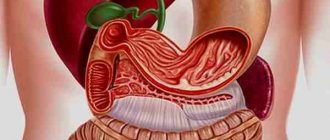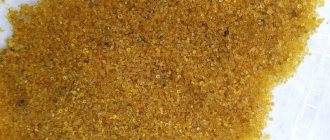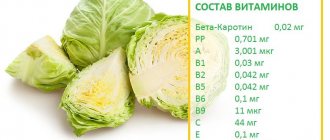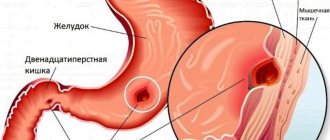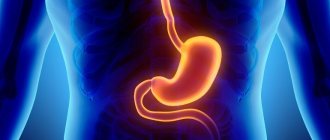Weak stomach: how to strengthen it
Poor nutrition, alcohol consumption, smoking, unhealthy environment, excessive stress on the body - all this worsens the functioning of the gastrointestinal tract. In addition to these reasons, a wide range of provocateurs of stomach weakness can be identified. As a result, frequent diarrhea or constipation, nausea, weakness, belching and the development of various pathologies are observed.
Weakness of the stomach can develop at a very young age, often after 30. It is noteworthy that today more than 30% of the world's population has gastritis or duodenitis - an inflammatory disease of the mucous membranes of the stomach and duodenum. If these diseases are not treated, peptic ulcer disease or so-called irritable bowel syndrome develops over time. The first disease is extremely dangerous, the second one causes many problems and is manifested by constant flatulence, impaired bowel movements, and painful spasms. Taking into account all these negative consequences, which begin with a simple weakness of the stomach, we can conclude that it is not only recommended to strengthen the gastrointestinal tract from time to time, but is extremely important for a comfortable and healthy life.
How to strengthen your stomach at home? There are many ways to do this, from adjusting food hygiene to special physical exercises and medications. Read more about each method below.
Intestinal pathologies that can be treated with folk remedies
As a rule, problems with the intestines are caused by inflammation in its various parts and an unhealthy diet. Before self-medicating with folk remedies, you should definitely consult with a competent specialist. It is necessary to establish the exact cause of the problem by undergoing a thorough examination.
Diseases that can be eliminated using traditional medicine:
- Intestinal infections.
- Helminthiasis.
- Constipation and diarrhea.
- Dysbacteriosis.
- Colitis.
It is advisable to coordinate treatment with a doctor, who can adjust the treatment regimen in a timely manner.
How you can strengthen your stomach: eat right
The main function of the stomach is digestion. A healthy stomach copes with this task with a bang, even if we eat the wrong food. However, every time you eat unhealthy food, your gastrointestinal tract puts more and more effort into digesting it. Unfortunately, the capabilities of the digestive system are not limitless and over time it begins to act up. Fast food, fatty foods, spicy dishes, fried foods, etc., affect the functioning of the tract. How does this happen?
If we consider the stomach from the inside, then the first protective line of this organ is the mucous membrane. A healthy mucous membrane does not allow harmful bacteria and microorganisms to pass through, which cause disruption to the functioning of the entire body. Over time, with improper nutrition, the membrane becomes “irritated”, its integrity is compromised, and the walls become thinner. This process can be triggered by certain foods that are eaten frequently or in enormous quantities. Among them:
- smoked meats;
- coffee;
- fatty foods;
- food that is too hot or cold;
- alcohol;
- vinegar;
- carbonated drinks;
- hot spices;
- preserves;
- fried foods, etc.
Even with the slightest violation of the integrity of the mucous membrane, its destruction and changes in the microflora begin.
Protecting the stomach is the first rule of strengthening it. Of course, such a process can only be carried out with proper nutrition, excluding the above-mentioned harmful foods. Dietary fiber products must be present in the diet. For example:
- White rice;
- dried fruits;
- legumes;
- artichoke;
- oats;
- parsley;
- chestnuts;
- black currant;
- dark chocolate (70% cocoa);
- wholemeal bread.
These simple ingredients help strengthen the stomach lining and are essential for proper peristalsis. Moreover, dietary fiber stimulates the development of proper microflora and keeps opportunistic microorganisms under control.
It is not advisable to indulge too much in hard or dry foods. Such food usually takes a very long time to digest. Food that is too soft is also not very healthy. Purees, pates, viscous porridges, soufflés, omelettes and smoothies are digested quickly. However, these products do not require chewing, which means they are practically not processed by saliva. Everything needs a proper balance.
In order for the stomach to function properly, it is important to avoid fried foods. The fact is that oxidized fat irritates the mucous membrane of the gastric tract. Give preference to boiled, stewed, baked or steamed food.
Foods that strengthen the stomach:
- broccoli;
- raspberry leaves;
- figs;
- cereals;
- carrot;
- bran;
- apples;
- avocado;
- raisin decoction;
- yogurt;
- nuts;
- flax seeds;
- beet juice;
- greenery;
- still water.
It is important to know that not only the consumption of certain foods plays a role in strengthening the stomach, but also the diet itself. The thing is that the capacity of the stomach is not that great. As nutritionists say, you can calculate the serving size by folding two palms together. The volume of the resulting handful will correspond to the size of a single meal. As a rule, people neglect this rule and can eat 3-4 times more than allowed at a time. This is due to the ability of the stomach to stretch. Despite the fact that the food “fits in,” there is no guarantee that it will be digested correctly and quickly. Often after such overeating, food stagnation occurs in the digestive tract. This leads to fermentation and damage to the walls of this organ. To prevent such a situation and thereby not weaken the stomach, nutritionists recommend eating often, but in small portions. Divide your diet into 6 meals a day and eat no more than a handful.
The morning meal is also very important. Many people neglect breakfast, and completely in vain. Morning nutrition helps to “wake up” the stomach and stimulate its work for the next day. For breakfast, it is better to prepare viscous porridge with dried fruits, cottage cheese casseroles or steamed vegetables. It is also important to drink properly during breakfast. Contrary to popular belief, coffee is not so beneficial in the morning. It is better to replace it with herbal tea or just warm water.
Continuing the topic of nutrition, do not forget to dilute it with vitamin complexes. These microelements are very important for strengthening the gastric mucosa. The following vitamins are especially useful:
- A;
- AT 6;
- E;
- WITH.
In addition, zinc will not be superfluous in this unison.
General rules for strengthening the stomach
To improve digestion, you need to eat right. And for this purpose only high-quality, fresh products will be used. Therefore, the first thing to do is throw out spoiled and spoiled food from the refrigerator. For proper nutrition, smoked, salted, fried, sour and spicy foods are excluded from the daily menu. Instead, fresh vegetables and fruits, cereals, juices and compotes are included in the diet. Vegetable salads are seasoned with sunflower or olive oil, sprinkled with lemon juice, but not with mayonnaise.
When upset, the body loses a lot of fluid. Therefore, drinking water is very important. The daily norm is 1.5-3 liters. Carbonated drinks, including mineral water, are not suitable. Herbal teas, compotes and infusions will help restore water. To strengthen the stomach, an infusion of pomegranate peel and meadow geranium, tea from raspberry leaf and mint, a decoction of quince root and angelica officinalis are suitable.
How to strengthen the stomach and intestines: A healthy lifestyle is the key to health
In addition to the generally accepted rules of a healthy lifestyle (sports, nutrition, etc.), when strengthening the stomach and intestines, it is important to give up bad habits. In first place among those harmful to the gastrointestinal tract, of course, are smoking and excessive alcohol consumption.
The first enemy of the stomach is nicotine. The thing is that this substance enhances the secretory function of the stomach. This leads to the release of excess gastric juice and constriction of blood vessels. Excessive amounts of hydrochloric acid disrupt the integrity of the mucous membrane, and vascular spasm affects the functioning of peristalsis. Have you noticed that hiccups often begin while smoking? This is the first sign of deterioration of the gastrointestinal tract muscles. In addition, cigarette smoke suppresses the feeling of hunger. This leads to malnutrition. If you want to strengthen the muscles of the stomach, heal the mucous membrane and normalize peristalsis, quit smoking.
A separate topic is alcohol. Excessive consumption of alcoholic beverages significantly worsens the condition of the mucous membrane, “washes out” good microflora, inhibits the digestion process and increases the concentration of gastric juice.
Why does my stomach drop? Main causes of gastroptosis
The cause of a prolapsed stomach is weakness of the surrounding abdominal muscles and ligaments.
This is especially true for the deep transverse muscle. Its weak tone leads to a slight prolapse of the stomach.
However, a displacement of the organ a couple of centimeters downwards still leads to its dysfunction.
The pathological location of the stomach negatively affects the function of the organs adjacent to it: the pancreas, spleen, and intestines.
Gastric gastroptosis has 2 origins:
- Congenital or constitutional. In this case, a person of asthenic physique can upset the stomach. He has a naturally long, thin body, poorly developed or not developed muscles at all. Failure of the gastrocolic ligament is the cause of prolapse of the stomach and pain in it.
- Acquired. You can tear your stomach and stretch its ligaments if you overdo it with physical activity.
Congenital features of the body such as:
- Narrow chest and shoulder girdle.
- Thin bones. When internal organs press on each other, the muscles cannot cope with the load placed on them and become stretched. In this case, not only prolapse of the stomach is observed, but also of the kidneys.
The causes of acquired gastric tearing include:
- Dramatic weight loss.
- Extensive surgical interventions in the abdominal region to remove tumors.
- Operations to eliminate effusion fluid from the abdominal cavity.
- Insufficient protein intake due to strict dietary restrictions.
- Chronic overeating. This also includes eating fatty and low-quality foods.
- Frequent consumption of carbonated drinks.
- Repeated births with the birth of a large fetus.
How to strengthen the stomach: medications
In addition to general recommendations for strengthening the stomach, we advise you to pay attention to medications. Of course, if you take pills, but at the same time eat poorly, smoke, drink alcohol, or have a passive attitude towards sports, you should not hope for long-term results.
Before choosing medications that strengthen the stomach, it is necessary to consult a doctor. Only he can correctly assess your condition, prescribe the right drug and calculate the required dosage. In general, for the general strengthening of the gastrointestinal tract, medications are selected aimed at normalizing the microflora and mucous membrane, improving digestion, normalizing stool, etc., depending on the symptomatic picture. Strengthening tablets for the stomach make sense only in complex therapy. For example, therapeutic abdominal massages are often prescribed, nutrition is adjusted (in particular, therapeutic diets are recommended), and physical therapy is recommended.
To strengthen the stomach, the following medicinal groups can be prescribed:
- Probiotics. These are preparations that contain cultures of living microorganisms. They are aimed at restoring microbiocenosis. Once in the gastrointestinal tract, probiotics multiply and inhibit pathogenic and opportunistic flora. Thus, they create conditions for the formation of favorable microflora of the stomach and intestines. Often, probiotics are used to strengthen the stomach during diarrhea. This drug group includes the following drugs:
- Acylact;
- Bifidumbacterin forte;
- Linux;
- Bificol;
- Enterol;
- Enterozermina et al.
- Prebiotics. This group does not contain cultures of living microorganisms. Medicines of this group, once in the gastrointestinal tract, have a positive effect on the growth of colonies and the activity of beneficial bacteria already existing inside the tract. Probiotics serve as a source of nutrition for microorganisms that form healthy microflora. At the same time, pathogenic colonies are reduced, toxic metabolites are eliminated. These drugs include:
- Duphalac;
- Medulak;
- Normaze;
- Eubicor;
- Portalak;
- Hilak forte;
- Yogurt;
- Lactofiltrum, etc.
- Antacids. These are drugs that provide protection to the mucous membrane. These substances neutralize hydrochloric acid and reduce stomach acidity. Antacids are often prescribed for heartburn, gastritis, or even peptic ulcers. Drugs in this group have an antispasmodic effect, heal micro-wounds and prevent recurrences of painful spasms. Among the antacids, the following medications can be noted:
- Rennie;
- Almagel;
- Gaviscon;
- Maalox;
- Phosphalugel;
- Gastal et al.
- Sorbents. This is a medicinal group aimed at absorbing toxins, gases, acids and waste products of certain microorganisms from the gastrointestinal tract. They are taken to treat various diseases, and are also prescribed to strengthen the stomach in complex drug therapy. This medicinal group includes many drugs, the most effective and popular of which are:
- Polysorb;
- Sorbex;
- Smecta;
- Enterosgel;
- Povidone;
- Neosmectin;
- Atoxyl;
- Activated carbon;
- Neointestopan and others.
- Bismuth preparations. The bismuth-based medicinal group improves the protective properties of the gastric mucosa. The active substances form a protein film on the mucosa, which has antibacterial and anti-inflammatory effects. Also, with the help of bismuth preparations, you can strengthen the walls of the stomach. Among this medicinal group it is worth noting the following drugs:
- De-nol;
- Vikalin;
- Bismuth subcitrate;
- Vis-nol;
- Gastro-norm, etc.
- Enzymes. These drugs are intended to improve digestion, normalize peristalsis, break down proteins, fats, carbohydrates and general unloading of the stomach. They help fight bloating, relieve the feeling of heaviness, and eliminate flatulence. The most popular and effective drugs in this group:
- Pancreatin;
- Ermital;
- Mezim;
- Pangrol;
- Enzistal;
- Kreazim;
- Creon;
- Festal et al.
It is worth noting that some drugs that we take in everyday life and often without a doctor’s prescription are very harmful to the stomach and intestines. For example, medications based on acetylsalicylic acid. These medications are often the first help during a cold, headache or muscle pain. Yes, they are effective, but they are quite unsafe for our gastrointestinal tract, especially if taken frequently or in large quantities. Tablets with acetylsalicylic acid damage the gastric mucosa and reduce the tone of the stomach muscles.
Also at risk are antibacterial drugs or so-called antibiotics. They completely destroy the microflora of the digestive organ, causing related problems.
Iron preparations recommended for anemia have a rather aggressive effect on the stomach and intestines. They disrupt the functioning of the entire digestive system, significantly reducing the absorption of nutrients and the formation of proper microflora.
The above drugs that are “harmful” to the stomach should be taken only after consulting a doctor. Self-medication in this case is quite dangerous.
Folk remedies
Often, doctors themselves willingly recommend the use of alternative medicine methods. There are many cases where only traditional healers successfully eliminate health problems.
For constipation
Lack of stool is a clear sign of gastrointestinal disease. This condition provokes dangerous phenomena: the development of hemorrhoids, rupture of the anus. Gas accumulates in the abdomen, swells the peritoneum and causes severe discomfort. If fecal stagnation is not eliminated, intoxication of the body may develop.
To solve the problem, use the following traditional medicine recipes:
- Senna seeds. This bitter-tasting herb quickly relieves constipation. You can buy it at any pharmacy. The preparation is very easy: pour a spoonful of seeds with boiling water (approximately 600 ml) and leave for 2 hours. You need to drink 3 tbsp every hour. After administration, a strong laxative effect is observed. It is necessary to take into account that you should not abuse the drug, as natural intestinal motility may be disrupted.
- Castor oil. This is a common method of treating constipation. Even a small amount of oil can activate the digestive system and normalize motility. 20 g of castor oil is enough to get the effect. Castor oil can be replaced with olive or vegetable oil. In pharmacies, castor oil can be found in capsule form.
- Prunes. Very effective for chronic constipation. 500 g of prunes are poured into 3 liters of water and brought to a boil. Then add 50 g of buckthorn and boil for another 10 minutes. 200 g of rose hips are added to the cooled broth. Drink 100 g of the finished product before bedtime. The drink is easy to drink as it has a pleasant taste.
To wake up your lazy intestines, you can add bran, steamed with water, to cereals, yoghurts and soups.
For diarrhea
When choosing a remedy for diarrhea, you need to take into account intolerance to the main component of the selected recipe.
Effective folk ways to eliminate diarrhea:
- Blackberry tea . It “fixes” perfectly, and is drunk like regular tea.
- Grated apples . The peel must be cut off. Every hour you need to eat half an apple.
- Coffee made from acorns . Gives an instant effect. You should drink without sugar.
- Walnut . Grind the leaves, pour boiling water and leave. Stevia is added to improve the taste.
How to strengthen the stomach at home: folk remedies
Don't forget about traditional medicine. In terms of strengthening the stomach and intestines, it is quite effective. Let's say more, sometimes even gastroenterologists recommend using various herbal decoctions or following a special “folk” diet as maintenance therapy. Scientists have proven that certain plants have a beneficial effect on digestive processes, soothe irritated mucous membranes and even have an antispasmodic effect. The list of folk remedies for strengthening the stomach is quite extensive, so we have compiled a selection of the most effective and harmless.
Chamomile infusion to strengthen the stomach
- Pour a teaspoon of dried chamomile into a cup and pour boiling water over it.
- Infuse the liquid for 10 minutes.
- Strain the infusion.
- Drink the infusion several sips throughout the day.
- The course of treatment is 5 days.
Dill water to strengthen the stomach
- Brew dill seeds.
- Infuse the liquid, then strain.
- Drink warm before bed or during breakfast.
- The course of treatment is 5 days.
Medicinal mixture based on rowan fruits to strengthen the stomach
- Mix 4 tbsp. l rowan fruits, 3 tbsp. l St. John's wort and 2 tbsp. l marshmallow root.
- Pour a tablespoon of the resulting mixture into 500 ml of boiling water.
- Infuse the drug for 50 minutes, then strain.
- Drink half a glass of medicinal liquid 4 times a day.
Medicinal mixture based on blueberries and sage to strengthen the stomach
- Mix in a separate container 2 tbsp. l dried blueberries, 3 tbsp. l sage leaves, 1 tbsp. l cumin fruits with 1 tbsp. l cinquefoil rhizomes and 1 tbsp. l immortelle inflorescences. Mix the mass well.
- Pour a tablespoon of the mixture into a glass of boiling water.
- Place the medicine on the fire and boil for 10 minutes.
- Cool the product and strain.
- Divide the liquid into 3 doses throughout the day, 15 minutes before meals each.
Medicinal mixture of bird cherry and blueberry to strengthen the stomach
- Mix 3 tbsp. l dry bird cherry and 2 tbsp. l dry blueberries.
- Grind the berries into powder using a coffee grinder or blender.
- Pour a tablespoon of the mixture into a glass of boiling water.
- Take 2 tbsp. l 3 times a day for diarrhea.
Walnut tincture to strengthen the stomach
- Chop 200 grams of walnuts and remove all the partitions.
- Place the partitions in a jar and fill them with 500 ml of food alcohol.
- Infuse the product for 5 days.
- Take 7 drops, dissolving them in 100 grams of warm water.
- Consume the remedy for diarrhea 3 times a day.
Infusion of meadow geranium to strengthen the stomach
- 2 tbsp. l dried herb pour a glass of boiling water.
- Infuse the mixture until it cools completely, then strain.
- Take 1 tbsp. l every 2 hours.
Barley infusion to strengthen the stomach
- 1 tbsp. l pour barley grains with a glass of water.
- Infuse the product for 5 hours.
- After steeping, boil for 10 minutes.
- When the infusion has cooled, strain it.
- Drink in small sips throughout the day.
Rice water to strengthen the stomach
- Pour a teaspoon of rice with 7 glasses of water.
- Place the product on the fire and boil until the rice is hung.
- Drink the decoction every 2 hours warm, 1/3 cup.
- This decoction is recommended for diarrhea.
Quince decoction to strengthen the stomach
- 1.5 tbsp. mix crushed quince roots with a glass of water.
- Place the product on low heat and boil for 30 minutes.
- Infuse the drug until it cools completely, then strain.
- Drink 2 tbsp as an antidiarrheal agent. l 3 times a day.
Dried fruit compote to strengthen the stomach
- Rinse dried fruits: apples, pears, prunes, dried apricots and raisins.
- Boil 2 liters of water in a saucepan.
- Throw the dried fruits into boiling water and cook for 10 minutes.
- Cool the compote and strain.
- Drink throughout the day.
Methods of strengthening
What diet for indigestion?
Nutrition should be healthy. The diet includes:
Dried fruit compote is suitable to replenish lost fluid.
- Lots of liquid. You need to drink pure and mineral water, herbal teas, dried fruit compotes, apple and pomegranate juice, low-fat broth.
- Products containing pectin: applesauce, yoghurts, dairy starters, bananas. Pectin helps strengthen the intestines and cope with symptoms.
- Vegetables and fruits that contain potassium. Jacket potatoes, bananas, fruit juices, and wheat sprouts will help restore it in the body.
- Salt. It is necessarily present because it retains moisture in the body. Meat broths, crackers, and vegetable soups are suitable.
- Dishes rich in proteins. Hard-boiled eggs, chicken, and beef are consumed.
- Dry cookies and crackers. It could be a cracker or a biscuit.
- Slimy porridge. Oatmeal and rice - perfectly strengthens the stomach.
Folk remedies
The healing properties of plants can heal and strengthen the stomach. For this purpose, pomegranate peels are used, which are poured with boiling water and infused. This infusion is drunk two sips three times a day. In addition to pomegranate, walnut partitions have a medicinal effect on the stomach. The alcohol infusion of the partitions is placed in a dark place for 3 days. Take 10 drops diluted with water 3 times a day.
Children with this problem can be given a decoction of rice.
If a child has an upset stomach, then prepare an infusion of blueberries, which have astringent properties. Four tablespoons of dried berries are poured with cold water and left for 8 hours. For children, rice broth is suitable. Take a spoonful of rice per glass of water and cook for 40 minutes. This decoction is given on an empty stomach, one teaspoon every 2 hours. Raspberries will help strengthen the walls of the stomach. Its leaves are useful for brewing aromatic tea that soothes the mucous membrane.
Functional dyspepsia is popularly called a lazy stomach. This is a very common disease that is characterized by insufficient stomach function when food is not digested properly. The pathology is accompanied by pronounced symptoms and requires immediate treatment. There are several types of the disease, which manifest themselves in different ways.
Causes and signs of gastric stoppage
Modern lifestyle often leads to disruption of the gastrointestinal tract. Snacking on the go, ignoring healthy foods, consuming large amounts of coffee, energy drinks and other products that have recently become fashionable often cause various diseases. As a result, the number of patients with gastritis, stomach ulcers and cholecystitis increases every year.
Symptoms of atony
If there is a disturbance in the functioning of this organ, a person experiences unpleasant symptoms that can last for quite a long time. The main signs of atony are as follows:
- In rare cases, the patient is accompanied by vomiting and nausea.
- Feeling of heaviness in the abdomen. Some patients compare it to a stone or call it a “stake.”
- Appetite is noticeably reduced. The patient quickly gets full, and some foods disgust him.
- An unpleasant taste and smell appears in the mouth.
- With atony, you often feel dizzy, pale, and decreased performance.
- Shortness of breath or hiccups occurs due to the stomach stopping.
- An unpleasant pain appears in the epigastric region.
In order to make a correct diagnosis, you should consult a doctor. Often, a physical examination alone is not sufficient to diagnose a disease. The doctor may prescribe blood, urine and stool tests, as well as ultrasound, fibrogastroscopy and x-rays with a contrast camera.
Why is the organ not working?
Only after identifying the full clinical picture can full treatment begin. In order to get rid of atony, medications are used, diet and physiotherapy are prescribed.
Among the reasons for gastric stoppage are the following:
- Poisoning. During poisoning, pathogenic microorganisms penetrate the gastric mucosa, which leads to disruption of the absorption and digestion system of food. The result is vomiting, diarrhea, abdominal pain and, as a consequence, gastric arrest.
- Alcoholism. Due to prolonged alcohol intake, the mucous membrane is replaced by rough scar tissue covered with foci of inflammation. Once in the stomach, food can no longer be digested properly and, as a result, fermentation of food residues occurs. Therefore, a drinker constantly suffers from diarrhea, constipation, and bloating.
Often the cause of this unpleasant disease is unbalanced diets. The lack of necessary products in the diet leads to the fact that healthy microflora is replaced by pathogenic ones. A person develops dysbiosis and the functioning of the stomach stops.
- Smoking. Toxins from tobacco smoke poison our body and inhibit beneficial microflora.
- Often the stomach stops functioning normally after surgery.
- In pregnant women in the second and third trimester, compression of the digestive organs occurs and, as a result, bloating occurs. Sometimes atony in pregnant women occurs due to toxicosis.
- Nervous exhaustion and fatigue cause disruption of the innervation of the stomach.
To prevent more serious illnesses, you should consult a specialist. Since gastric arrest is often only a symptom of a gastrointestinal tract disease.
How to make your stomach work: everyday tips
To restore the secretory and motor function of the stomach, you need not only to eat a healthy and balanced diet, but also to follow the recommendations of lifestyle specialists, as well as to observe a work and rest regime. Below are expert tips to help you cope with stomach atony at home, which can be used not only to correct the pathology, but also to prevent it.
Structure of the stomach
Physiotherapy
This is the simplest and most effective way to improve motility of the entire gastrointestinal tract. Sufficient physical activity helps maintain muscle tone (including stomach muscles) and improves the movement of blood and lymph in the microvasculature. To prevent food from staying in the stomach for more than 2-3 hours (this is how long the initial stage of the digestive process takes), you should do therapeutic exercises daily. The exercises shown in the photo can be performed in the morning or used as a quick warm-up during the day. It is better if classes take place 1-2 hours after meals: this will avoid digestive disorders and ensure timely movement of food from the stomach to the duodenum.
Therapeutic exercise for motility of the entire gastrointestinal tract
Compliance with drinking regime
Water is the best and most accessible remedy for the prevention of stomach atony and constipation. Entering the stomach, water stimulates the contraction of its walls and ensures normal motility of the gastrointestinal tract. Drinking plenty of water is also recommended for those who suffer from chronic constipation, as water softens dried feces and makes it easier to remove them from the body.
The rate of water consumption recommended by gastroenterologists for the prevention of atony of the stomach and intestines depends on the person’s age, weight and individual characteristics (presence of bad habits, dietary habits, working conditions, etc.).
How much water should a person drink per day?
| Age | Water consumption per day |
| Children and teenagers under 12 years old | 1.1-1.3 l |
| Teenagers over 12 years old and adults | 1.5-1.85 l |
| Persons with 2nd degree obesity | 1.85-2.4 l |
| Persons with obesity 3-4 degrees | 2.4-2.8 l |
| Elderly patients | 2.-2.5 l |
A glass of cold water in the morning helps to get your stomach moving
Note! A glass of cold water in the morning helps start your stomach and ensures comfortable digestion throughout the day. Patients with chronic asthenia (chronic fatigue syndrome) can add mint leaves, a slice of lemon and a teaspoon of honey to the water: this will increase the tone of the body and improve metabolic processes.
Alimentary fiber
Dietary fiber (coarse plant fiber) is another available remedy that allows you to make your stomach work without the use of medications. Once in the human gastrointestinal tract, fiber cleanses it of toxic substances and allergens, and also stimulates the contractile activity of the intestinal and gastric walls. The recommended fiber intake for an adult is 30 to 50 g per day. Experts believe that almost 80% of people do not receive even half of the recommended amount, which can cause indigestion, constipation, and intestinal dysbiosis (dietary fiber is food for beneficial bifidobacteria).
To prevent the development of lazy stomach syndrome and make it work, doctors recommend:
- add vegetables and fruits to each meal (they should be consumed 4-5 times a day);
- drink 1 glass of freshly squeezed juice daily, which can contain from 6 to 10 g of fiber (per serving 220-250 ml);
- regularly add ground wheat bran to thick dairy products, such as yogurt (1 teaspoon per glass of drink);
- Serve vegetable dishes (casseroles, salads, vegetable stews) as a side dish for meat or fish.
A large amount of fiber in the diet is contraindicated for inflammatory diseases of the stomach and intestines
Some of the products used for everyday nutrition should be replaced with healthier dishes. It is better to replace pasta and pasta made from premium wheat flour with pasta made from oatmeal or corn flour. The same applies to bread: for daily consumption you should choose products made from rye or peeled flour, with the addition of whole grains, seeds, and bran.
Important! A large amount of fiber in the diet is contraindicated for inflammatory diseases of the stomach and intestines (gastritis, duodenitis, colitis, gastroenteritis, etc.). For these pathologies, fruits and vegetables should be consumed 1-2 times a day, boiled, mashed or baked.
Hiking
Walking is the most accessible way to maintain normal functioning of the gastrointestinal tract, which can be used by people of any age, regardless of physical fitness, build and the presence of chronic diseases (with the exception of people with pathologies of the musculoskeletal system). People who walk at least 3-5 km daily are 7 times less likely to suffer from digestive disorders, constipation, bloating and other unpleasant manifestations of functional dyspepsia.
Walking is the most accessible way to maintain normal functioning of the gastrointestinal tract
